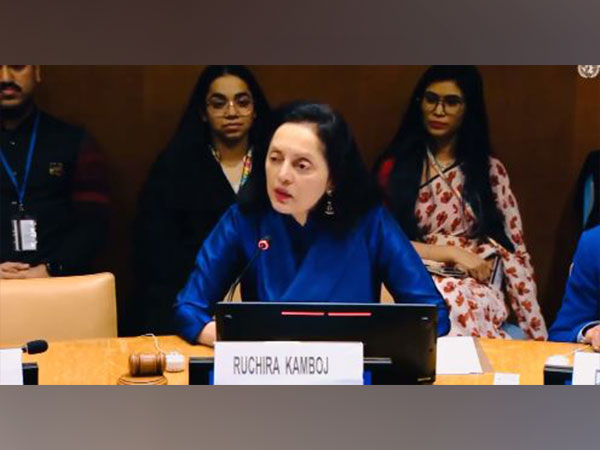India’s Permanent Representative to the United Nations, Ruchira Kamboj, on Tuesday said that India is committed to women-led development, emphasizing the country’s advocacy for gender equality on a global scale.
“Prime Minister Narendra Modi’s vision of developed India, or ‘Viksit Bharat,’ necessitates the full and equal participation of women,” Kamboj said.
She was addressing a special event organized by India’s Permanent Mission on the sidelines of the 68th annual Commission on the Status of Women, an annual gathering on gender equality and women’s empowerment.
Highlighting India’s successful G20 presidency, Kamboj said that it ushered in a new era of empowerment with a focus on women-led development.
Kamboj remarked that India’s G20 presidency saw six international conferences and 86 virtual meetings being held on issues related to gender equality.
“A multifaceted strategy is being implemented to empower women by addressing their health, safety, education, employment and entrepreneurship– the full spectrum, so to speak,” she said.
“These initiatives aim to ensure gender justice, equality and the full participation of women in shaping India’s socio-economic, political and cultural landscape.”
Kamboj listed several initiatives launched by the government to support financial and social inclusion of women.
They include a robust network of 759 one-stop centres that provide integrated support and assistance, benefiting over 8.3 lakh women.
Offering another example, Kamboj cited the “Beti Bachao Beti Padhao” programme, which addresses the root cause of female feticide. She pointed out that the initiative has resulted in improving the sex ratio at birth from 918 to 933 females per 1000 males.
“Our education system promotes gender-sensitive curriculum and need-based education through the new education policy, resulting in parity in the gross enrolment ratio for girls and boys in higher education,” she said.
Further, she stressed that India has one of the highest proportions of women enrolled in STEM (science, technology, engineering, and mathematics) disciplines globally, standing at 43 per cent.
On gendered poverty, she said that India promotes sustained, inclusive and sustainable economic growth through initiatives like the JAM Trinity and financial inclusion targets.
“Women hold over 55 per cent of accounts opened under the Prime Minister’s Jan Dhan Yojna,” Kamboj said.
Citing the Pradhan Mantri Grameen Digital Saksharta Abhyan, she said that over 52 per cent women have enrolled in the initiative.
She further said that more than 100 million women have been connected through self-help groups, transforming the rural economic landscape. Additionally, the financial aid provided by the government for building houses to the underprivileged can only be availed if the house is registered in the woman’s name or owned jointly.
Speaking on government initiatives targeting maternal health, Kamboj said: “Maternal health remains a priority, with a significant decline in India currently in the maternal mortality ratio from 167 to 97. Frontline healthcare through the Asha programme and the Pradhan Mantri Matru Vandana Yojana supports expectant mothers, with financial support provided to over 3.31 crore mothers.”
Highlighting the Mudra Yojana, Kamboj said that the collateral-free loans disbursed through the programme support women entrepreneurs, with one out of five non-farm businesses and 45 per cent of manufacturing enterprises led by women.
The Stand Up India and Startup India schemes have also benefited women entrepreneurs, with 10 per cent of funds reserved for women-led startups.
“India has also provided access to clean cooking fuel for ten crore households, safe tap water for 14 crore households and constructed over 13 crore household toilets, reducing time, poverty and the care burden on women,” she stressed.
Moreover, she said that sanitary napkins are now 100 per cent tax exempt in India and are being sold through government stores at a discounted rate of Rs 1 per pad, enhancing accessibility.
On women’s representation in politics, Kamboj highlighted that India boasts over 14 lakh elected women representatives who constitute 46 per cent of the total number of representatives in panchayats and municipal corporations.
Kamboj also spoke about the women’s reservation bill 2023, which reserves one-third of seats for women in the Lok Sabha and state assemblies.
“India has 15 per cent women pilots in civil aviation, which is significantly higher than the global average of 5 per cent,” Kamboj said.
“We envision an India where women are self-empowered and not dependent on anyone, where they can make independent decisions and take risks without fear,” she added.
(ANI)














